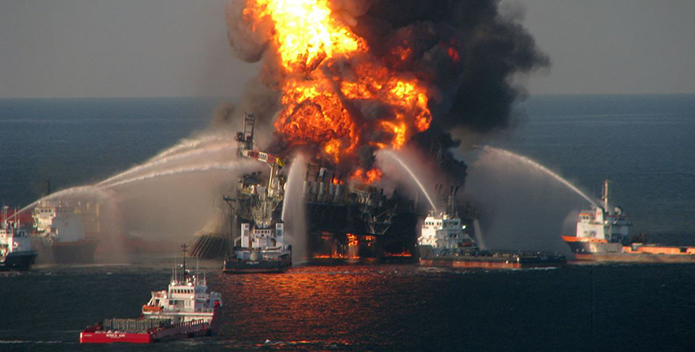The following was first published in the Virginian Pilot.
Nearly everyone in coastal Virginia agrees that drilling for oil and gas off our coast is a bad deal. That's not surprising. Think back to what happened when the Deepwater Horizon disaster spewed millions of barrels of oil into the Gulf of Mexico in 2010.
A similar spill in Virginia would lead to blackened sludge smothering wildlife and fouling beaches. Cleanup costs and lost revenue to businesses would be in the tens of billions of dollars. Tourism and fisheries economies would be devastated. That's not to mention extensive damage to the Atlantic Ocean and Chesapeake Bay. Even day-to-day operations would leach oil into our waters.
Simply put, the Trump administration's move toward drilling in the Atlantic threatens our way of life. That's why there's opposition to drilling in coastal Virginia at all levels of government and from both parties.
Recently, seven leaders from local, state and federal governments and both parties spoke out against drilling at a Chesapeake Bay Foundation town hall at the Brock Environmental Center in Virginia Beach.
The panel included several veterans, who all emphasized the significant challenges drilling would pose for the military.
"We've known for years that oil rigs and the Navy simply do not mix. The Navy needs to have the unfettered ability to train," Virginia Secretary of Veterans and Defense Affairs Carlos Hopkins said at the town hall.
One of the reasons our region is home to many military installations, including the largest naval base in the world, is that the coast offers unrestricted access for important exercises.
"Other states want what we have. If we make it harder for the military to do their job they will start to look elsewhere. That situation would cause us to lose jobs," Hopkins said.
Military spending accounts for 42 percent of the region's gross domestic product. In fact, relocation of just one aircraft carrier would cost the region $1 billion and 6,000 jobs, according to economists at the Hampton Roads Planning District Commission.
Coastal Virginia is the "epicenter" of where drilling would do the most damage, Congresswoman Elaine Luria said at the town hall. "It's hugely important in our region that we protect our environment, but for us in this region it's also about protecting our economy," Luria said.
Other major economic drivers here include tourism, commercial and recreational fisheries and aquaculture. Drilling would put all of them at risk.
"When someone has a bad experience on the seashore because of some environmental disaster flowing from an oil well or natural gas exploration, you are significantly ruined for years," Virginia Sen. Lynwood Lewis said at the event.
That's why it's a slap in the face to Virginians that Florida has been spared from drilling due to concerns about impacts to tourism. "We want the same respect for our state and our unique and valuable coastal and ocean resources that the administration has shown by exempting Florida," Virginia Secretary of Natural Resources Matt Strickler said at the town hall.
Access to waterways is a big asset for Hampton Roads. "People live near Norfolk because they want to be near the water. They need to be near clean water," Norfolk City Councilwoman Andria McClellan said at the town hall.
Virginia Sen. Bill DeSteph has worked on legislation that would bar offshore drilling in state waters up to three miles off the coast. The proposal would send a message that Virginia also opposes drilling in federal waters farther offshore.
"Frankly, we have a beautiful coastline, we have a great resource in Virginia Beach with the Atlantic Ocean. We want to keep it as pristine as possible," DeSteph said at the event.
We must maintain a unified front against this threat. The Trump administration is charging ahead, appealing recent legal setbacks and proceeding with seismic testing to discover oil and gas reserves.
We've got to beat back drilling while we have the chance.
John Coker of the Northampton County Board of Supervisors put it perfectly. "Let's be really aware of the risk we are taking. All you need is one mishap and boom, we are out of business. Is it really worth it?"




